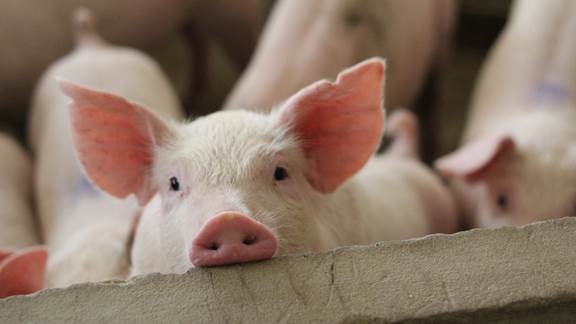The Chicken and Pig story is often used in the tech industry to characterise roles in the software development process. The primary purpose of the allegory is to delineate between individuals who are truly invested in a product’s success (Pigs) and those who are merely involved (Chickens). When working in a cross-functional development team, it’s easy to simplify these roles, thinking of the development team as pigs and clients as chickens. This may be because traditionally these teams have worked with stakeholders who have proven to be “chickens”. They may not have sat with the team day-to-day or even attended ceremonies such as end of sprint reviews. This lack of involvement can often result in a tendency for the development team to view all stakeholders as chickens. This is far from the case, as we explore in a previous post. At Kin + Carta, our approach is centred around collaboration and accountability, mirroring an industry-wide trend towards co-located working, mixed teams and business transformation. The Chicken and Pig story, while once helpful, may appear to draw a line in the sand between us and them, while not entirely explaining the nature of ownership, investment, and commitment in the Agile software development process. Our views on the Agile principles of people and collaboration stand. It’s the characterisation of these roles that we take issue with. Here’s why…
We’re all Pigs in the end
When it comes to commitment, it’s easy to assume that those producing outputs are most committed; they are the ones responsible for the creation of the product, right? But in the Chicken and Pig story, we know that both parties are capable of producing outputs. The key difference is that the pig has more to lose, unlike the chicken who can walk away from the situation without consequence. Whether on the business side or a member of the development team, there are parties responsible for deliverables. In a healthy, collaborative working relationship, all stakeholders should be aware of the impact their actions have on the creation of the product. That could be championing the product vision, providing timely feedback, aligning other stakeholders within the business, resolving dependencies and ensuring the development team has all the resources required to deliver quality work. We should be cautious in how we think of commitment; even though business stakeholders are not part of the development team, it does not mean they’re merely involved. On the contrary, they are very much committed to the success of the product and the actions required to achieve that goal. Failing to acknowledge the importance of business stakeholders in the development process puts an unfair onus on development teams to deliver quality products in a silo. Instead of thinking about who is and isn’t accountable, in Agile project management, we should be focusing on the precise ways in which every single person is committed to the product’s success.
When Chickens fly
There is still, perhaps, relevance and value in the Chicken and Pig story. While everyone working in an agile project is a Pig in reality, there are those who would be inclined to view themselves as Chickens. Put simply, there are people who believe the development team should be solely responsible for outputs, while failing to recognise their own importance in the successful delivery of a project. This puts undue pressure on the development team and doesn’t reflect the complex nature of software development in Agile. The Chicken and Pig story can help us identify would-be Chickens, so we can subsequently educate them on the risks of wing flapping. Put simply, the involvement of individuals who aren’t themselves committed to the product’s success is dangerous because there is no accountability. This can prove particularly problematic when it comes to HiPPOs (Highest paid person’s opinion), who often give their views without context or an understanding of their implications. When it comes to establishing roles in Agile project management - whether on the business side or part of the development team- we should be thinking of ourselves as one big happy piggery, where Chickens are neither helpful nor allowed. Unlike Pigs, Chickens can walk away without any repercussions, and it is that kind of thinking that prohibits true collaboration and teamwork.
Makin’ bacon
The Chicken and Pigs story centred around the difference between involvement and commitment, but rather than of thinking about this in terms of who’s bringing what to the breakfast table, we can instead think about it in terms of outcomes. Taking a macro view of a project and its aims, the business’s ultimate goal is not to ensure that outputs are simply delivered, but that quality outputs are delivered resulting in a profitable product. In order to achieve this aim, everyone must be committed to the goal - not just involved. At this point, Chickens’ lack of investment in or superficial involvement with the goal can only prove detrimental to reaching it. As such, we should take the view that:
- We are all in this together as accountable Pigs;
- We should identify potential Chickens, so that we may educate them on the importance of becoming Pigs; and
- We should align ourselves to a common goal - delivering a profitable product.
Perhaps, then, the time has come for a new story, one centred around a new truth: when it comes to makin’ bacon, Pigs are far more effective than Chickens.
